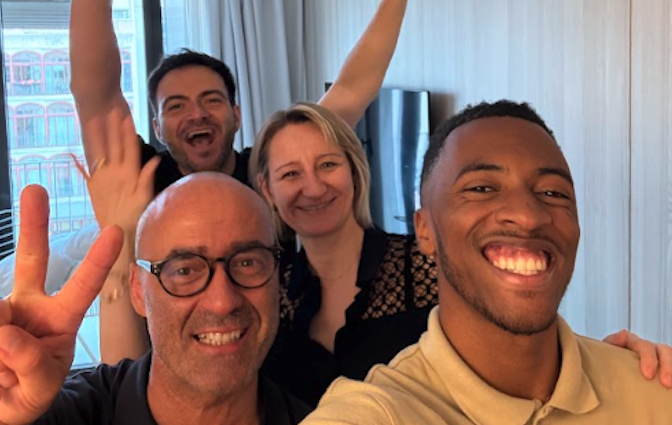"Where do I belong?" This question lingered in my mind long after my conversations with Sisi, a 21-year-old Chinese-Spanish student at Universitat Pompeu Fabra (UPF). Her parents migrated from China in the 1990s, like thousands of others, seeking economic opportunity in Barcelona. Yet Kiki—confident, Catalan-speaking, and deeply influenced by Spanish culture—felt neither fully Chinese nor entirely Spanish. Her story was not unique. Over two months, I interviewed ten second-generation Chinese immigrants aged 16 to 22, accumulating over 20 hours of raw, personal narratives. Their stories revealed a generation grappling with identity, cultural duality, and the weight of their parents’ sacrifices.
- Over 60% of first-generation migrants work in retail (百元店), hospitality, bars, or wholesale trade (textile warehouses, import-export).
- Nearly 30% own or operate small businesses, often family-run.
- A smaller segment works in construction or domestic services.
The Second Generation’s Dilemma: Between Nostalgia and New Identity
For these young Chinese-Spaniards, identity is not inherited—it’s negotiated. Key themes emerged:
While most speak Catalan and Spanish fluently, Mandarin or regional dialects (e.g., Wenzhounese) are often passive skills, learned at home but rarely mastered.
Parents’ plans to retire in China clash with their children’s anchored lives in Spain. "They expect me to care about relatives I’ve met twice," said Mark, 21. "But I don’t feel Chinese enough to mourn a village I’ve never seen."
Barcelona’s Chinese community is often reduced to stereotypes: hardworking, insular, running todo a cien shops. But this generation defies simplification. They are artists, engineers, and activists—navigating a world their parents couldn’t imagine. In the next section, I’ll delve into their hybrid cultural practices, from blending Lunar New Year with Festa Major to challenging stereotypes through social media. Their stories are not just about conflict—but about the creative resilience of growing up in-between.
Many assume that Spain-born Chinese automatically hold Spanish citizenship, but in reality, numerous families refuse it—clinging to their Chinese passports, convinced they will one day return to a homeland their children barely know. Take Jia, 16, now in her fourth middle school transfer after her parents moved to the Basque Country to open a new malatang restaurant. This isn’t her first relocation—years ago, they uprooted from downtown Barcelona to the suburbs for another family business. Despite her age, she’s been working weekends and holidays for four years, earning €20 per shift. Her family doesn’t take vacations, except for Chinese New Year, December 31st, and Semana Santa. Education isn’t a priority for them; they have no expectations for her future. Like many Chinese-Spanish youth, her cultural tastes are a mix—she listens to Spanish and English music but names Jay Chou as her favorite artist, a common preference among her peers.
Xin, 21, is finishing her degree and plans to pursue a master’s in the Netherlands. Unlike Jia’s family, she intends to switch to a Spanish passport for better EU opportunities—a practical choice her parents, who arrived 25 years ago, reluctantly accept. Her father came first in 2000, establishing a shoe store before bringing over her mother and then-6-year-old brother. Xin grew up helping in the business after school, but today, she feels more Spanish than Chinese (70% to 30%, by her estimate). Yet, despite being born in Barcelona, she finds full integration elusive. Most of her friends are Latin American—another immigrant community—because, as she explains, breaking into Catalan circles requires deep local roots.
Local authorities should implement mandatory civic education programs in schools, teaching immigrant youth how to engage with Spain’s political systems. Quotas or outreach initiatives could encourage Chinese-Spanish participation in local councils, mirroring efforts for Moroccan and Latin American communities.
Teachers need training to address cultural bullying (e.g., anti-Asian slurs, exclusion). Teenagers like Jia, already strained by family obligations, cannot navigate this alone. Multilingual counseling services would help bridge gaps between immigrant parents and
Spanish educators.
Community centers should offer legal workshops on citizenship rights and labor protections—many families don’t realize the benefits of Spanish passports. Youth mentorship programs could empower teens to articulate their dual identities without shame.
Integration isn’t just about learning Catalan or opening businesses—it’s about being seen as equals in the public sphere. Spain cannot afford to overlook its Chinese youth; their voices, if nurtured, could enrich Catalonia’s multicultural fabric. The time for passive coexistence is over. It’s time to listen.
Yixin Zhang
Yixin is a junior at the University of Michigan, majoring in International Studies with a minor in Environmental Science. She studied abroad with Barcelona SAE in the Spring 2025 semester, taking classes at both the School for International Studies (SIS) and the Universitat Pompeu Fabra (UPF). Yixin is a museum lover and her favorite band is One Republic.



